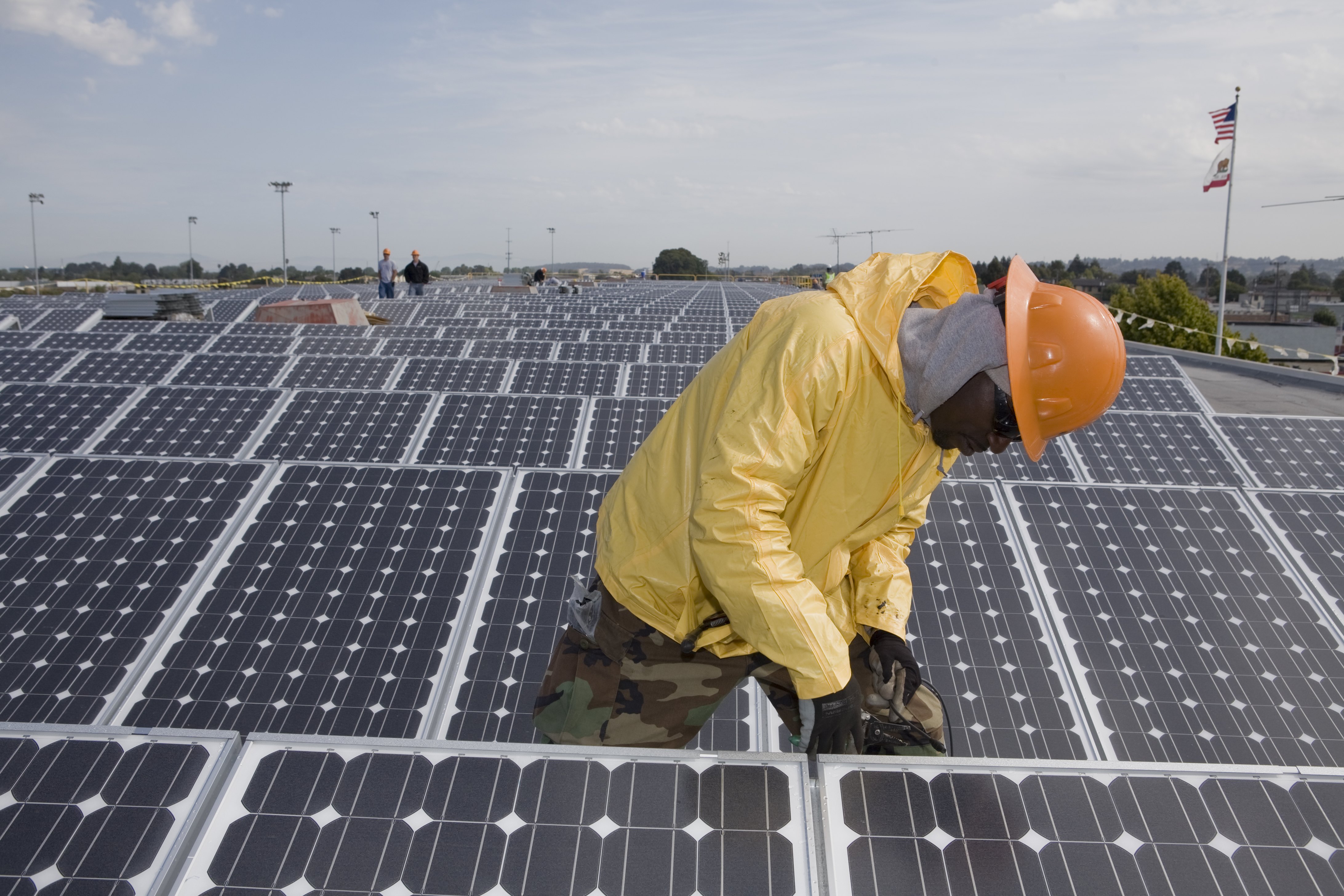Illinois Governor J.B. Pritzker signed one of the nation’s most ambitious state-level clean energy plans into law on Wednesday.
“After years of debate and discussion, science has prevailed, and we are charting a new future that works to mitigate the impacts of climate change here in Illinois,” Pritzker said in a statement.
The Climate and Equitable Jobs Act, or SB 2408, puts Illinois on track for a carbon-free power sector by 2045 and 100 percent clean energy by 2050. It includes equity and electric transportation provisions, holds utilities accountable, and increases funding for renewables. The legislation makes Illinois the first Midwest state to require a carbon-free future, joining California, Hawaii, New Mexico, New York, Virginia, and Washington.
Jeff Deyette, the director of state policy and analysis for the Union of Concerned Scientists’ Climate and Energy program, said the bill is unique because it goes beyond clean energy targets by centering communities and people in a way that other states’ commitments haven’t.
“This could serve as a catalyst to Congress, to show there’s an urgency here to act,” said Deyette. “What Illinois has shown is that diverse stakeholders can come together.” He added that Illinois is the first major coal-producing state in the nation to commit to a carbon-free future.
The new law calls for the shutdown of all of the state’s fossil fuel plants by 2045, increases community solar funding five-fold, and expands energy efficiency programs, especially in disadvantaged communities. Over $115 million will be invested in funding job hubs, career development, and support for small business owners in environmental justice communities. An additional $78 million will go to electric transportation targeted towards disadvantaged communities, things like rebates for electric vehicles and charging infrastructure.
“I was just really pleased that we were able to [agree to] close all of the coal and natural gas plants by 2045,” said Jennifer Walling, executive director of the Illinois Environmental Council.
Advocates say that while they wanted even more money for equity work in the final law, what Illinois passed still has the most ambitious clean energy equity provisions in the country.
“The number of equity programs that are in here are so important,” Walling told Grist. The law includes programs like contractor incubators to help train workers of color, as well as wraparound services to address barriers to employment like child care and transportation.
“It’s really the holistic nature of it that makes it as nation-leading as it is,” said Christie Hicks, lead counsel on energy markets and utility regulation for the Environmental Defense Fund. “The Midwest has been ignored as a place where climate and clean energy progress are a top priority, but they are.”
Illinois came close to passing an earlier version of a new clean energy law during its last legislative session that ended in May, but a last minute debate over whether or not to close the Prairie State Coal plant derailed agreement on the bill. Prairie State is one of the 10 biggest industrial carbon dioxide emitters in the United States. In the bill passed by state legislators earlier this week, and signed into law by Governor Pritzker, Prairie State will be required to slash its emissions by 45 percent by 2038, and to close altogether by 2045.
Another topic of hot debate during the last session was subsidies for nuclear power plants owned by the Illinois-based utility Exelon. Exelon had threatened to close some of the plants if they weren’t given subsidies, which would have threatened Pritzker’s clean energy timeline goals. In the Climate and Equitable Jobs Act, Exelon will receive $700 million over the next five years to keep three nuclear plants open. The subsidies will fall on customers, adding an estimated $2 to $15 to their monthly energy bills, according to estimates made by Democrats on the lower end and estimates on the higher end made by AARP Illinois.
Opponents of the bill have raised concerns about rate hikes to customers, including State Senator Steve McClure, who said in a statement that the bill is the biggest rate hike in Illinois history and would reduce the stability of the power grid, as well as take away property rights for landowners.
Representative Mike Murphy was similarly concerned about increased rates for the city of Springfield residents, due to the law’s required closing of Springfield’s municipal coal plant.
J.C. Kibbey, a clean energy advocate for the Natural Resources Defense Council, said he hopes Illinois’ new law inspires other Midwest states to pass their own clean energy bills. “The impacts of climate change are hurting us everywhere,” Kibbey said. “The Midwest is warming faster even than the rest of the country and we’re feeling the impacts here in the form of floods, droughts, and heat waves.”
He added, “I hope that it shows that climate change, and clean energy are important, politically salient, and winning issues in the Midwest.”




